Integrating Taiwan and International Supply Chain, Giant Group to Sell Carbon Rights for Bicycles to the EU
Get Greater - Giant Group’s 50th Anniversary Sustainable Future Summit
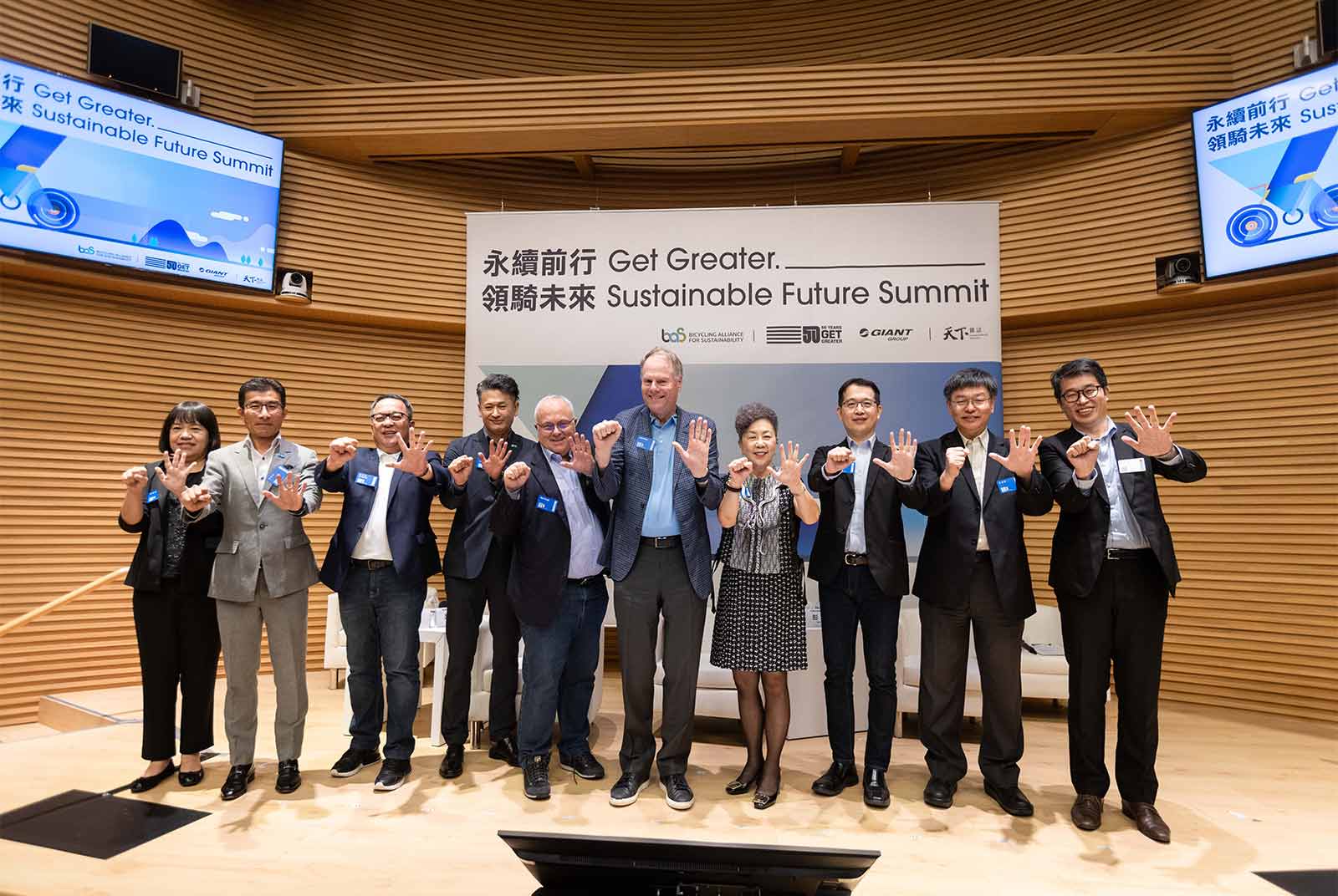
Source:Giant Group
Facing the challenge of carbon reduction, the transportation industry, which accounts for 16% of global carbon emissions, is seeing cycling as one of the greenest ways for citizens to commute. Giant Group, which celebrates its 50th anniversary this year, held the "Get Greater - Sustainable Future Summit" recently advocating that Taiwan's bicycle industry should execute sustainability through innovation and co-opetition with the international community.
Views
Get Greater - Giant Group’s 50th Anniversary Sustainable Future Summit
By Giant GroupSponsored Content
The goal of carbon reduction is about creating a livable environment and a green, sustainable future. Carbon reduction actions from governments, enterprises to individuals are of paramount importance. In response to the international community's call for net-zero carbon emissions, the Bicycling Alliance for Sustainability (BAS), Giant Group, the leader of the global bicycle industry, and CommonWealth Magazine jointly held the "Get Greater - Sustainable Future Summit." Members of Taiwan's Bicycling Alliance for Sustainability as well as global bicycle leaders such as Trek Bicycle、Scott Sports、SHIMANO、SRAM were all invited to the summit. The event started from the international trend and ended with actions Taiwan is taking, calling for the industry to adopt the key mindset of sustainable branding and connect consumers and supply chains to create sustainable values.
Bonnie Tu, Chairperson of Giant Group, indicated at the beginning that extreme weather is impacting the world, and the energy-saving and low-carbon nature of bicycles are bound to become the most ideal way for consumers to commute. Taiwan boasts a high-end bicycle industry chain and has a keen insight for the future trend of the global bicycle industry, making it an essential member of global environmental protection and sustainability. Within this context, Giant Group called on 33 business leaders in the bicycle industry in Taiwan to establish the Bicycling Alliance for Sustainability (BAS), with an aim to lead the global bicycle industry to develop and promote innovative, sustainable, and green transportation solutions to combat climate change. Putting ESG targets into actions with partners in the supply chain can be said to be the best gift for Giant Group’s 50th anniversary.
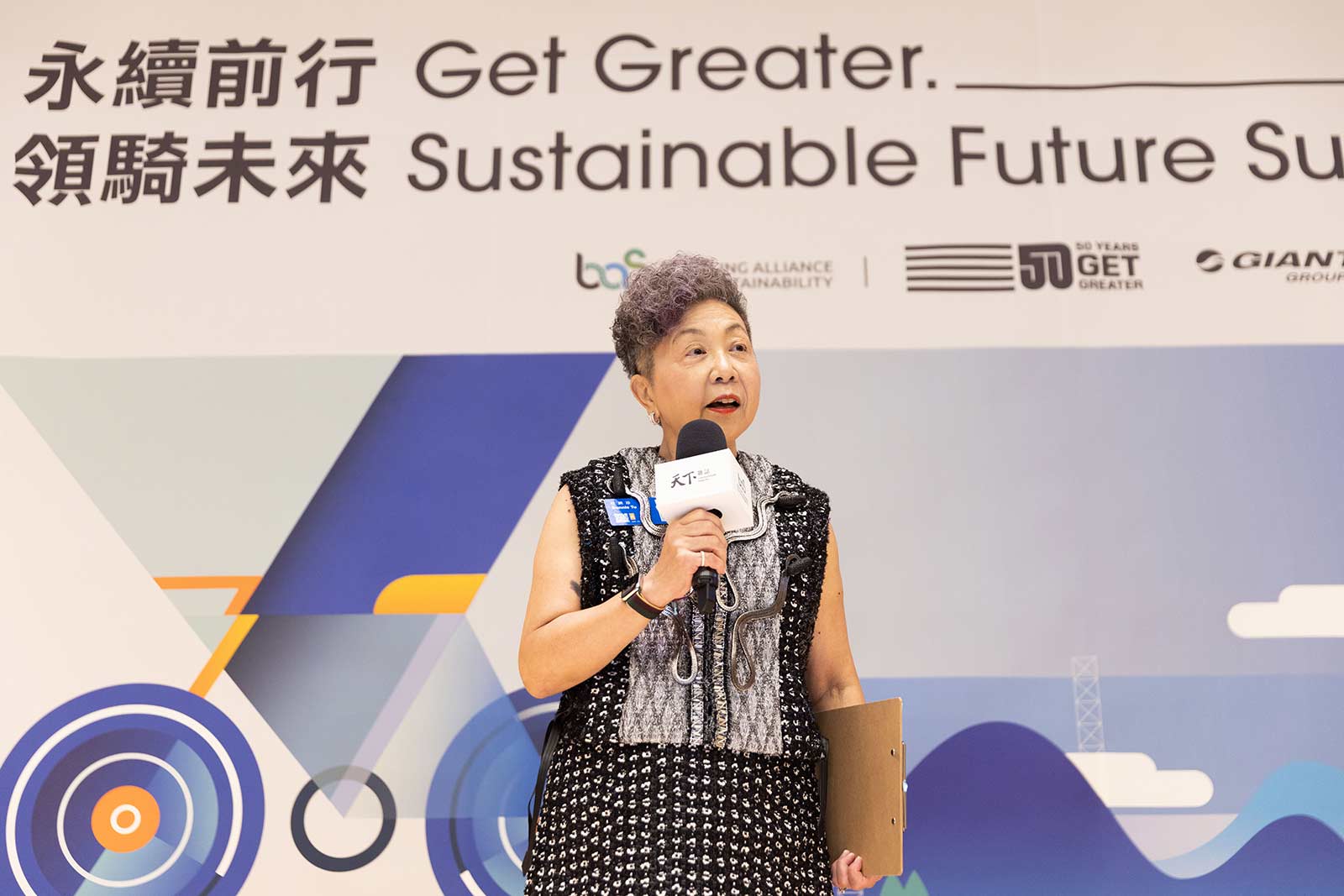
Bonnie Tu, Chairperson of Giant Group
Cycling for a Better Future, Giant Group's ESG Policy Focuses on Low-carbon, Transformation, Diversity, and Inclusion
Giant Group officially announced its ESG policy on its 50th anniversary celebration: "Cycling for a Better Future," which includes three aspects: Innovating a Clean Future, Transforming for Circularity ,and Mobilizing For DEI. It is expected that through the execution of the ESG policy, the group will be able do contribute to environmental sustainability and fulfill its corporate social responsibility and commitments.
Yin-Chuien Wu, Chairperson of CommonWealth Magazine, stated that it is an honor to witness the transformation of one of Taiwan's mainstay industries — the bicycle industry. The Taiwan-based industry cluster is now expanding globally and creating three times more job opportunities than the automobile industry. Giant Group implemented ESG with practical actions and took the lead in calling on the supply chain to launch for the BAS. The alliance strives to sell carbon rights to the EU and obtain the right to speak globally.
Malin Pettersson-Beckeman, Head of Sustainability Engagement & Communications at Inter IKEA Group, gave a talk on IKEA's sustainable values and shared value propositions proposed by IKEA achieve sustainable living. In order to mitigate the impact of climate change, IKEA has set a carbon reduction goal by 2030, which has been fully implemented in its value chain and is reducing its carbon footprint to the minimum. The efforts include the evaluation of the recycling capacity of more than 9,500 products at IKEA and making 55% of its products with renewable materials, with a goal of strengthening connection between people and the earth to pursue common goods. Changes have been made one by one in areas such as energy, water conservation, and waste reduction. IKEA strives to become a responsible enterprise with a circular economy business model and bring positive impacts towards a resilient society.
Spotting Problems from Carbon Footprint Verification and Working with the Supply Chain to Reduce Carbon Emissions
Kwangyin Liu, Managing Editor at CommonWealth Magazine, presided over "Panel discussion A: Leading the bike industry to the next level." Bonnie Tu, Chairperson of Giant Group, indicated that in order to promote sustainable development, cities should actively invest in the infrastructure for safe cycling and at the same time reduce the number of vehicles with high carbon emissions.
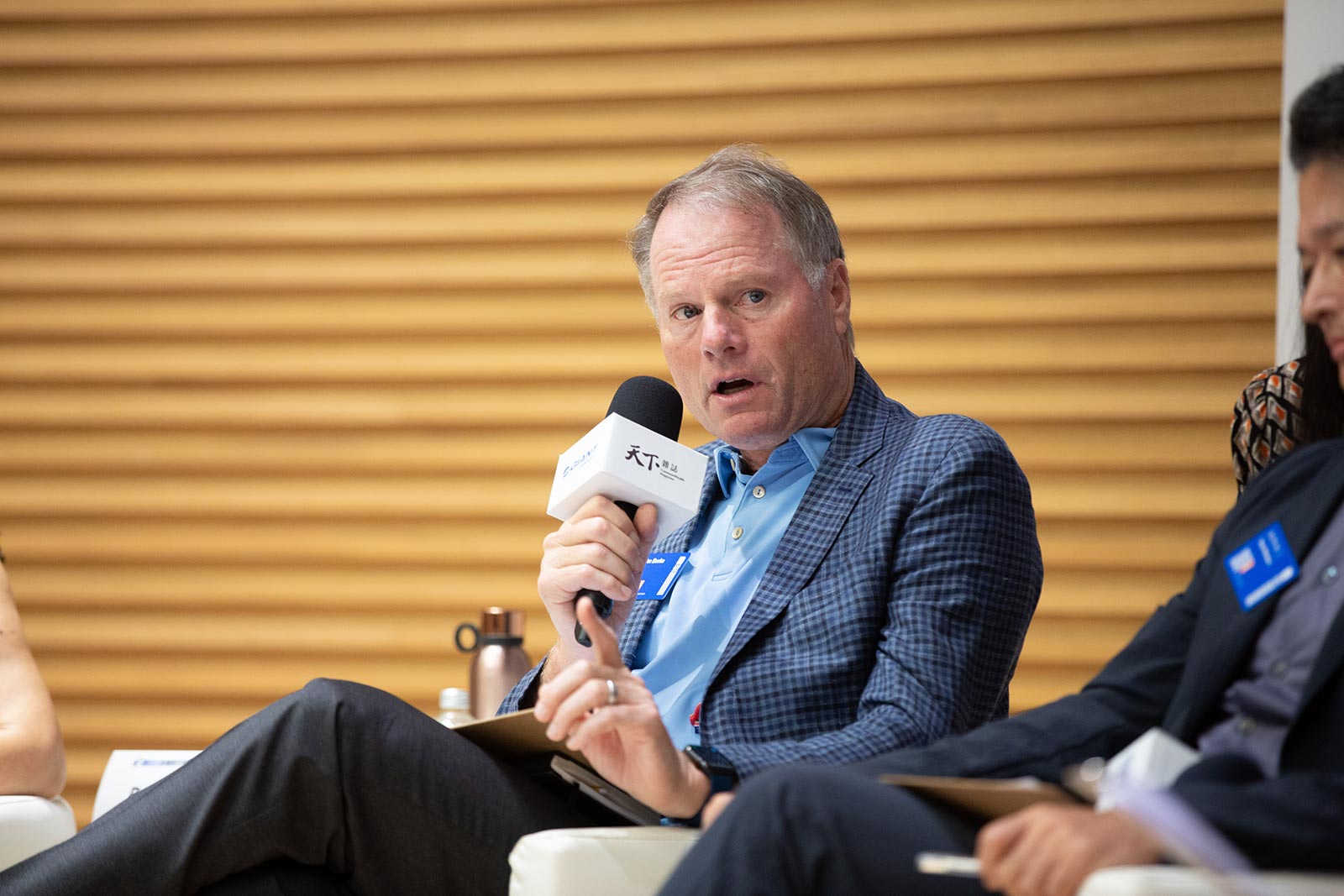
John Burke, President of Trek Bicycle
John Burke, President of Trek Bicycle, pointed out that the young generation has a strong awareness of affection towards the earth. Trek organized bike competitions to allow children and parents to participate together, stay away from high-tech products, and move with low-carbon emissions. The company invited the young generation to brainstorm together for more solutions. Beat Zaugg, CEO of Scott Sports, emphasized that Generation Z attaches great importance to the concept of "carpe diem" and "live in the moment." This gives them a more creative mindset, and enterprises should give young employees opportunities to bring about changes from the bottom up. They can also drive innovation from the perspective of young consumers, and encourage enterprises to face problems honestly in order to make breakthroughs. Taizo Shimano, President of SHIMANO, mentioned that that Generation Z loves to share content and connect their mobile phones to the Internet all day. Therefore, Shimano has built experience centers in Osaka and Singapore to allow young people to try and grow fond of Shimano bicycles. The four businesses present all released their ESG sustainability reports and implemented carbon footprint verification and carbon disclosure, which is exactly "turning on the lights to spot where the problems are." The journey to carbon reduction cannot be accomplished alone, and the only way to practice it is to collaborate with all dealers and partners.
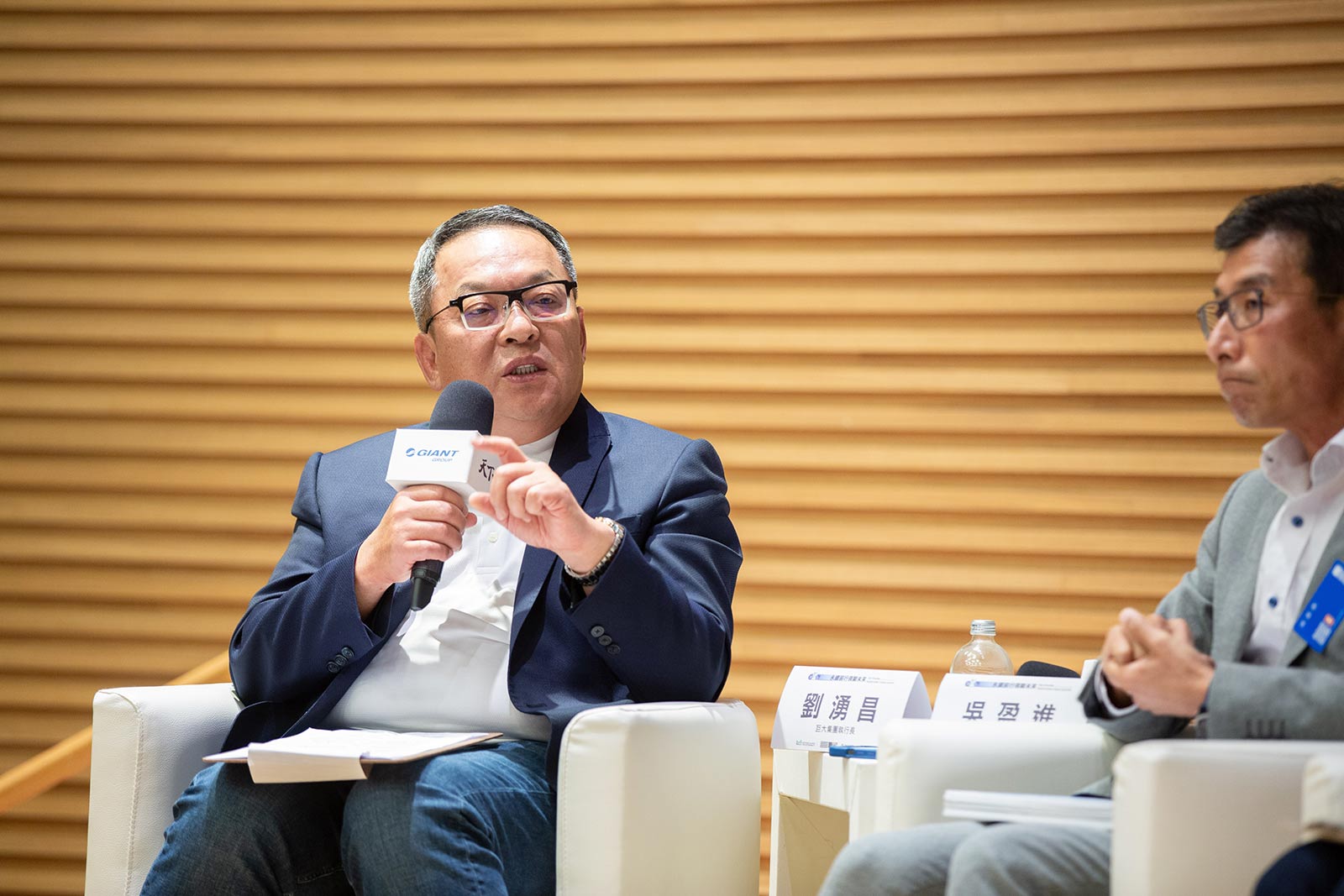
Young Liu, CEO of Giant Group
Jimmy Hsiung, Deputy Editor-in-Chief of CommonWealth Magazine, presided over "Panel discussion B:Ride into the Future-Sustainability and Bike Industry." Young Liu, CEO of Giant Group, explained that the BAS is planning to speak out to the EU to for the right to sell carbon rights from the bicycle industry and that it is encouraging consumers to embrace the concept of carbon reduction. At the same time, BAS has launched the Carbon Reduction Passport, inviting businesses in the supply chain to reduce emissions from manufacturing, design, and materials. The association is also planning to launch a carbon footprint certification for individual products. He added that if the cost invested in carbon reduction can create long-term profits, it should be regarded as a corporate investment and promoted proactively.
Alex Peng, Executive Vice President of the Industrial Technology Research Institute (ITRI), stated that building an industrial alliance is one of the best solutions for Taiwan to move towards net-zero carbon emissions. It is necessary to formulate carbon reduction goals in stages and launch a certification system so that the price reflected in the cost of carbon reduction can be accepted by the market.
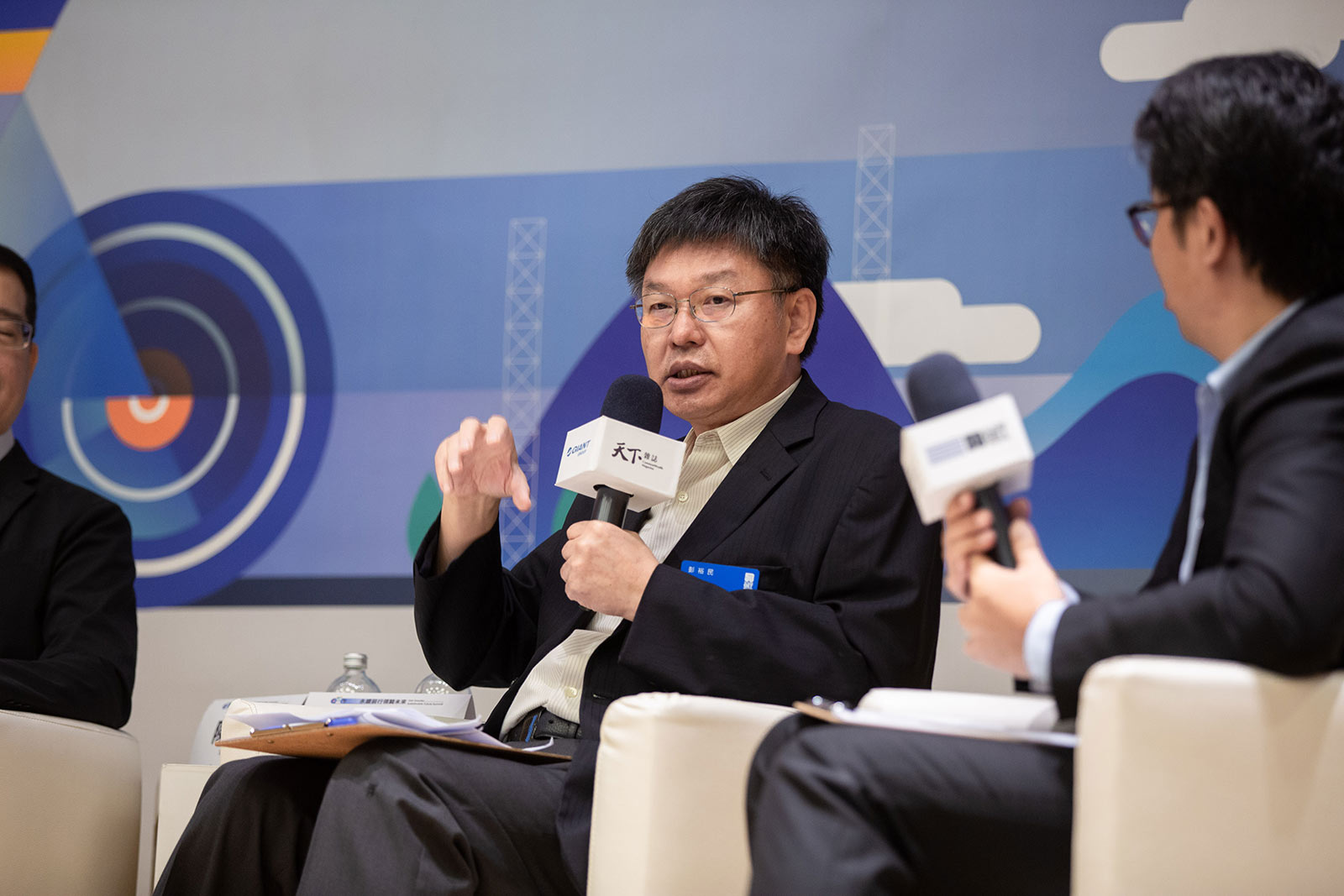
Alex Peng, Executive Vice President of the Industrial Technology Research Institute (ITRI).
Bob Chen, General Manager of SRAM Asia, pointed out that the most important thing for a company to achieve sustainable carbon reduction is to build a consensus and change its mentality. Companies can seek advice from external consultants to analyze their sources and types of carbon emissions and create profits from carbon reduction. Robert Wu, Chairman of Kuei Meng International, indicated that Kuei Meng became the first chain manufacturer to complete its carbon footprint verification in 2011. The company promoted the Green Square Plan, entrusting the Cycling & Health Tech Industry R&D Center with the mission of guiding businesses in the industry to obtain carbon footprint certification. Kuei Meng called on the industry to manage carbon emissions with science-based targets and incorporate carbon reduction into corporate management to realize sustainable operations.






